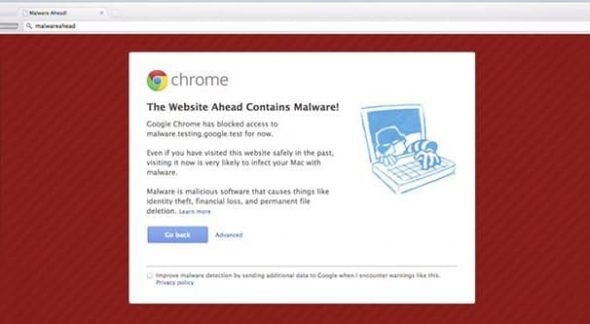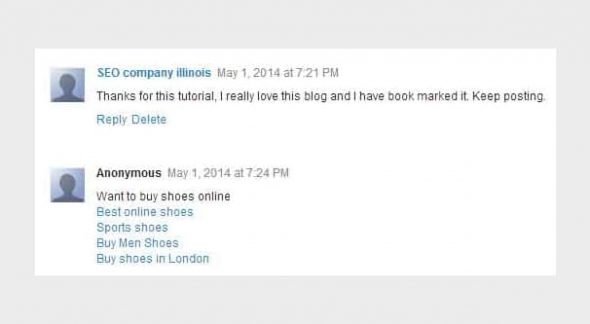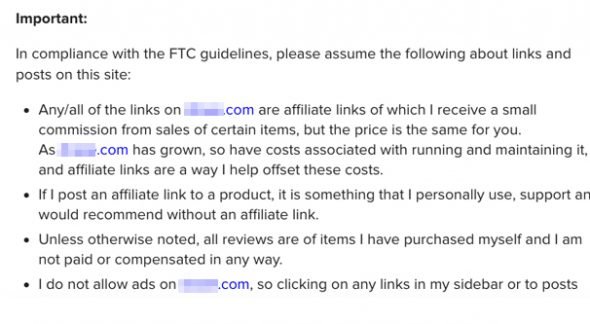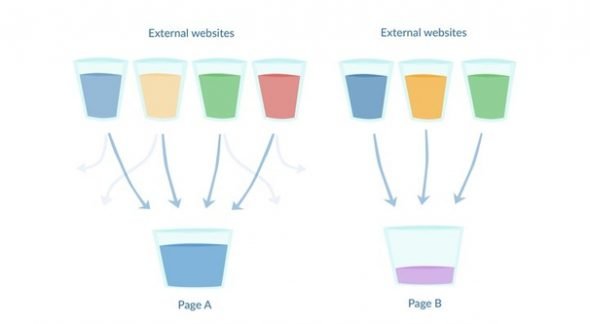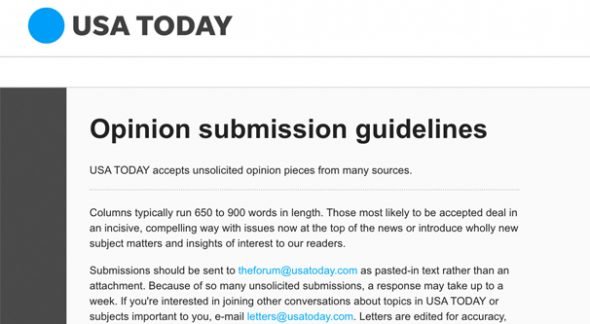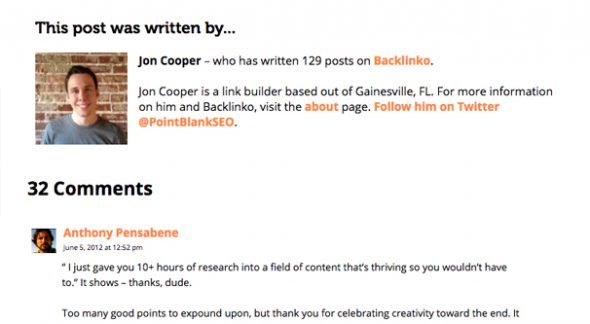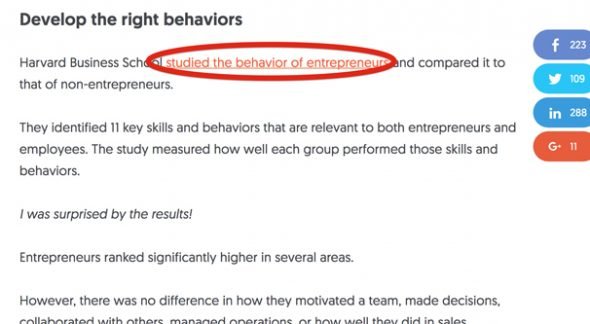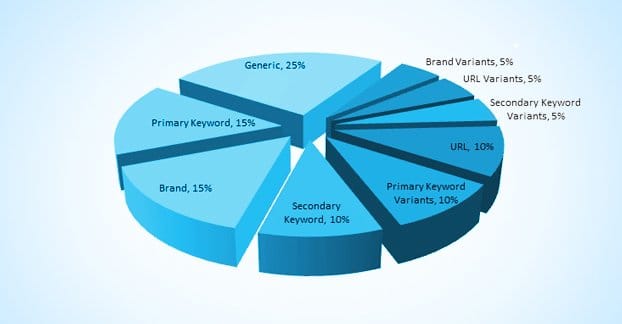Google has a lot of different rules surrounding links, specifically the kinds of links you can build pointing at your site. If you build the right kind of links, you can skyrocket yourself to the top of the search rankings. If you build the wrong kind of links, you can find your ranking tanking, or even see your site removed from the index altogether. How can you know which links are which, and what you can you do to avoid penalties?
Avoid Links from Hacked Sites
This one is pretty simple. A link on a hacked site is going to be either valueless or worth negative value, because the site is compromised. There’s no way for Google to tell if the link is supposed to be there, or if a hacker put it there to try to scrape value from the site before Google delists it for being hacked.
If you have links from good sites that are hacked, you don’t need to disavow the links. Google can tell from their records that the links were there before, but they will devalue those links until such time as the site fixes their hacking issue. If the site never fixes their issues, they will remained deindexed and your links will cease to exist.
Avoid Links from Spam Sites
Another obvious one. Spam sites are essentially valueless, even if they’re made to look legitimate. Often, these sites will be populated primarily with stolen, scraped, or spun content, with thin content and plenty of affiliate links rounding it out. These kinds of sites are absolutely not what Google wants to show, and they’re not the kinds of sites a user wants to see. Links from those sites will tend to be valueless, because the sites themselves are valueless. Remember, the way links work, the linking domain needs to have existing value in order to pass any of that value along.
Avoid Links from Spam Comments
Most user-generated content, with the exception of social media, tends to be a bad place to get links. Links in blog comments can be valuable in some circumstances, and I’ll talk about those below. Links from other user-created content are generally not worth much.
This includes forum signatures, forum posts, entries in guestbooks, advertorials, site-wide submission links, links from embedded widgets, and other such links. If you can go out and put your link on another site without that site’s owner knowing or approving of it, you can bet that the link is probably not going to be worth building.
Avoid Links from Thin Content Pages
Thin content pages are not necessarily bad sources of links, or they wouldn’t be, except Google tends to penalize such sites for their content. Google’s Panda update was primarily focused on penalizing sites with thin content. Even if the content is decent, there’s not enough meat to it, so it eats a penalty. This means the site doesn’t have much value and thus doesn’t pass much value along. Since Panda was in 2011, there’s no excuse to not have fixed the problem in seven years, so it’s likely that the site isn’t going to become valuable any time soon. Google can assume the link was made to be on a site like that and devalue the link itself.
Avoid Paid Links Without a Disclosure
Paying for traffic is not uncommon; it’s the basis of paid advertising. Paying for links is also not uncommon. Paying for links is just sponsoring content, paying to support an event to have your name linked to in their credits, or another kind of sponsorship.
The thing is, such paid links need to be flagged as paid links. Whenever you sponsor an event, you end up on the list of sponsors, but that’s a known quantity. Everyone knows you paid to sponsor the event. The same goes for sponsored content, when the content is properly described as sponsored.
If you pay to sponsor a piece of content but the content is not labeled as sponsored, you are getting into undisclosed financial ties territory. That’s not just worth a Google penalty, it can get you in trouble with the FTC.
Avoid Links from Irrelevant Content
One of the biggest factors determining how much value a link will pass is the relevance of the two pages on either side of the link. If you’re running a site about small business marketing:
- A link from a site focusing on teaching Spanish isn’t going to be very valuable.
- A link from a site focusing on starting a tutoring business is going to be a bit more valuable.
- A link from a site focusing on the details of running a small business is going to be even more valuable.
- A link from a site like Entrepreneur.com is going to be extremely valuable.
The more relevant the pieces of content and the more relevant the focus of the two sites, the better off the link will be.
Avoid Links from Foreign Content
Links from foreign content are not necessarily damaging, but they aren’t necessarily going to help you either. A link from foreign content can be good if the foreign content is directly relevant and talking about your site as a reference in that other language. A Spanish site linking to your English site as an English-language resource for their topic is a good link.
Most of the time, however, foreign links are not going to help you in your native language search. Those links will be impactful for the foreign language version of search, but if you don’t cater to that audience, that isn’t helpful. Additionally, a lot of spam comes through foreign language links, usually Chinese.
Avoid Links from PBNs
Google hates private blog networks. Private blog networks can work, but any results you might see will be short-lived. Links from PBNs will give you value right up until Google identifies the PBN and penalizes it, at which point the links will become valueless. If you’re particularly unlucky, Google might flag you as part of the PBN and could delist your site entirely. This type of penalty is much more difficult to recover from.
Avoid Links from Sculpted Pages
PageRank Sculpting – and now DA and other metric sculpting – is a means of using very fine-tuned link building combined with careful linking out and nofollows to direct link juice in very specific ways. It’s also incredibly obviously artificial tampering with the flow of link value, and as such, Google hates to see it. Don’t sculpt your own pages and try to avoid getting links from sites that aggressively sculpt their own value.
That’s enough about links you should avoid. There are plenty of articles out there about link penalties and what to do to fix them; you can research that on your own time. Now let’s talk about the good links to build.
Seek Out Links in Natural Editorial Content
Natural links in editorial content are the bread and butter of the link building world. It’s what makes the world go ‘round, as far as Google is concerned. I’ve put a couple such links in this post already, and you can bet virtually every piece of content out there has at least one editorial link included as well. Any time you can write a piece of content that is linked to for reference or further reading, that’s an excellent link to have. Additional links to landing pages or other high value locations on your site can be good as well, so long as they’re relevant.
The number one thing to keep in mind is that no link is ALWAYS going to be good. A link from the most high-value SEO site in the world isn’t going to be any good to someone in a completely unrelated niche with completely unrelated content.
Seek Out Links in Good Guest Posts
Guest posting is an excellent link building technique because you can control where you’re getting links from, simply by only pitching guest posts to the kinds of sites that are most relevant to you.
If those sites accept, you also have control over the content, so you already know that the content is going to be relevant and that the link is going to be valuable in context. On top of that, the editor of the site has the final say as to whether or not the link gets published, which means there is editorial oversight and thus Google can be assured that the link is meant to be there.
Seek Out Links from Good Blog Comments
I mentioned before that blog comments can in some circumstances be good links. The fact is that the vast majority of blog comment links are going to be nofollowed and thus won’t matter much to your link profile. I will discuss nofollow a bit more in a minute here, but first, comments.
Consider carefully every comment you want to leave. Read the post you’re commenting on carefully, and come up with a relevant question or comment to leave on it. Don’t just link to your site, though; link to a specific post on your site that is relevant to both the content and the comment.
For example, if I were leaving a comment on this exact post you’re reading now, I would want to leave a comment relating to my own experiences with link building. I might write a comment like “Some excellent tips here! I just wanted to say that I’ve been building links for a while now, and I wrote a case study about the links I built, both good and bad. You can read more about the case study here.” This would be accompanied by a link to the study.
This would be a valuable link because the author of the original content can read and be interested in the content at the other end of the link. It’s also great networking, because the author could then link to that content in a future piece they write.
Seek Out Links from Social Media
Social media links aren’t going to be some SEO powerhouse, but they have plenty of value in other ways. They’re generally nofollowed, but they’re essential to a robust web presence. A site with a ton of links and zero presence on social media looks fake or sculpted. Social links can also bring in social proof and traffic from those social networks.
Seek Out Links from Authority Sites
In this case, I mean authority sites on powerful TLDs like .edu or .gov. These TLDs are not inherently more powerful than .com or anything else, but they’re restricted so that the only people who can make sites using them are official entities.
That means the weight of the site on that domain is inherently stronger, because it’s a known important entity. Such links, then, can be very good so long as they’re relevant.
A Note on Nofollow
A lot of people read about nofollow, which removes the flow of link juice, and feel like those links aren’t worth building. However, if you have a site where you haven’t built a single nofollowed link, your backlink profile looks sculpted and fake. A natural backlink profile is going to have a wide variety of links from a lot of different sources, ranging from small and nearly valueless blogs up to huge authority sites. Nofollow links are an important part of making your profile look natural and avoiding link-related penalties.
 ContentPowered.com
ContentPowered.com

